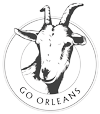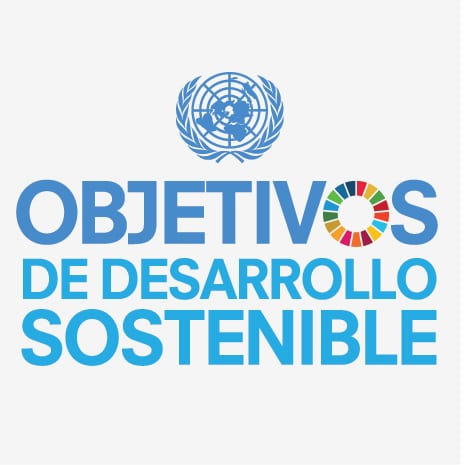 Vigilancia Tecnológica
Vigilancia Tecnológica
AIMPLAS to develop bioplastics for active packaging for cosmetics and absorbent litter for pets for the BeonNAT Project
AIMPLAS is working on developing bioplastics for active packaging for cosmetics and absorbent litter for the pet industry within the European BeonNAT Project. These are just two of the innovative products that will be developed within the framework of the project, which fosters the creation of value chains to make use of trees and shrubs grown on marginal land as a biomass source for bio-industries.
The project scope covers cultivation and harvesting of selected species, extraction and purification of essential oils and plant extracts, and manufacture of paper, biochar, activated carbon, bioplastics packaging for cosmetics, lignocellulosic materials, new absorbents for pets, paper pulp and particle board.
Specifically, as part of the project, AIMPLAS will produce PLA from lactic acid, which will be obtained from fermentable sugars in plant biomass waste and used as a bioplastic to make packaging for cosmetics. Essential oils with different active properties, such as antimicrobial power, will be added to this packaging. AIMPLAS is therefore collaborating with Laboratorios Maverick to produce packaging, and with IDOASIS as a supplier of active substances in a value chain that includes CIEMAT, ATB and IPB. Another project line is being led by Tolsa, in which AIMPLAS is working on the production of silica capsules containing essential oils with different functions, such as providing antimicrobial properties to improve absorbent litter for pets.
One of the main goals of this project is to generate innovative products with a suitable chemical composition from this underused biomass in accordance with strict ecological requirements.
The best raw material for industrial scale-upHow marginal and unused land can be put to use is also being studied, as well as the capacity of selected species to grow on this land. The biochemical and ecological features of harvested biomass and its potential as a raw material in industrial processes are also analysed as part of the project. The distribution of cropland in mixed formats with different arrangements is studied to optimize crop yield for each country where the land is located (Germany, Romania and Spain). Likewise, the best initial soil conditions and crop techniques and technologies are being investigated, as well as other factors that affect quality and the number of harvests.
In addition, during processing of post-harvest biomass, ways of optimizing refining and purification will be analysed.
A key part of this project includes analysing the processes involved. Work will first be done at pilot scale while industrial scale-up is studied that allows for increased productivity and a reduction of associated costs, with the overall goal of maximizing performance and ensuring sustainability is a priority at all stages.
16 partners in the BeonNAT ProjectThe project consortium is made up of 16 companies and centres from seven countries. The Centro de Investigaciones Energéticas, Medioambientales y Tecnológicas (CIEMAT) from the Spanish Ministry of Science and Innovation is coordinating the project. Besides AIMPLAS, the other project participants are Fundación Centro de Servicios y Promoción Forestal y de su Industria de Castilla y León, Consorzio per la Ricerca e la Dimostrazione sulle Energie Rinnovabili, Leibniz Institut für Agrartechnik und Bioökonomie (ATB), Brandenburgische Technische Universität Cottbus-Senftenberg, Universitatea ?tefan cel Mare din Suceava, Instituto Politécnico de Bragança (IPB), Laboratorios Maverick, Tolsa, Contactica, Idoasis 2002, El Jarpil, Envirohemp, NNFCC Limited and the Asociación para la Certificación Española Forestal.
BeonNAT is funded by the Bio-Based Industries Joint Undertaking (BBI-JU) with grant agreement number 887917. BBI-JU is supported by the Horizon 2020 research and innovation programme of the European Union and the Bio-Based Industries Consortium.
The project scope covers cultivation and harvesting of selected species, extraction and purification of essential oils and plant extracts, and manufacture of paper, biochar, activated carbon, bioplastics packaging for cosmetics, lignocellulosic materials, new absorbents for pets, paper pulp and particle board.
Specifically, as part of the project, AIMPLAS will produce PLA from lactic acid, which will be obtained from fermentable sugars in plant biomass waste and used as a bioplastic to make packaging for cosmetics. Essential oils with different active properties, such as antimicrobial power, will be added to this packaging. AIMPLAS is therefore collaborating with Laboratorios Maverick to produce packaging, and with IDOASIS as a supplier of active substances in a value chain that includes CIEMAT, ATB and IPB. Another project line is being led by Tolsa, in which AIMPLAS is working on the production of silica capsules containing essential oils with different functions, such as providing antimicrobial properties to improve absorbent litter for pets.
One of the main goals of this project is to generate innovative products with a suitable chemical composition from this underused biomass in accordance with strict ecological requirements.
The best raw material for industrial scale-upHow marginal and unused land can be put to use is also being studied, as well as the capacity of selected species to grow on this land. The biochemical and ecological features of harvested biomass and its potential as a raw material in industrial processes are also analysed as part of the project. The distribution of cropland in mixed formats with different arrangements is studied to optimize crop yield for each country where the land is located (Germany, Romania and Spain). Likewise, the best initial soil conditions and crop techniques and technologies are being investigated, as well as other factors that affect quality and the number of harvests.
In addition, during processing of post-harvest biomass, ways of optimizing refining and purification will be analysed.
A key part of this project includes analysing the processes involved. Work will first be done at pilot scale while industrial scale-up is studied that allows for increased productivity and a reduction of associated costs, with the overall goal of maximizing performance and ensuring sustainability is a priority at all stages.
16 partners in the BeonNAT ProjectThe project consortium is made up of 16 companies and centres from seven countries. The Centro de Investigaciones Energéticas, Medioambientales y Tecnológicas (CIEMAT) from the Spanish Ministry of Science and Innovation is coordinating the project. Besides AIMPLAS, the other project participants are Fundación Centro de Servicios y Promoción Forestal y de su Industria de Castilla y León, Consorzio per la Ricerca e la Dimostrazione sulle Energie Rinnovabili, Leibniz Institut für Agrartechnik und Bioökonomie (ATB), Brandenburgische Technische Universität Cottbus-Senftenberg, Universitatea ?tefan cel Mare din Suceava, Instituto Politécnico de Bragança (IPB), Laboratorios Maverick, Tolsa, Contactica, Idoasis 2002, El Jarpil, Envirohemp, NNFCC Limited and the Asociación para la Certificación Española Forestal.
BeonNAT is funded by the Bio-Based Industries Joint Undertaking (BBI-JU) with grant agreement number 887917. BBI-JU is supported by the Horizon 2020 research and innovation programme of the European Union and the Bio-Based Industries Consortium.







